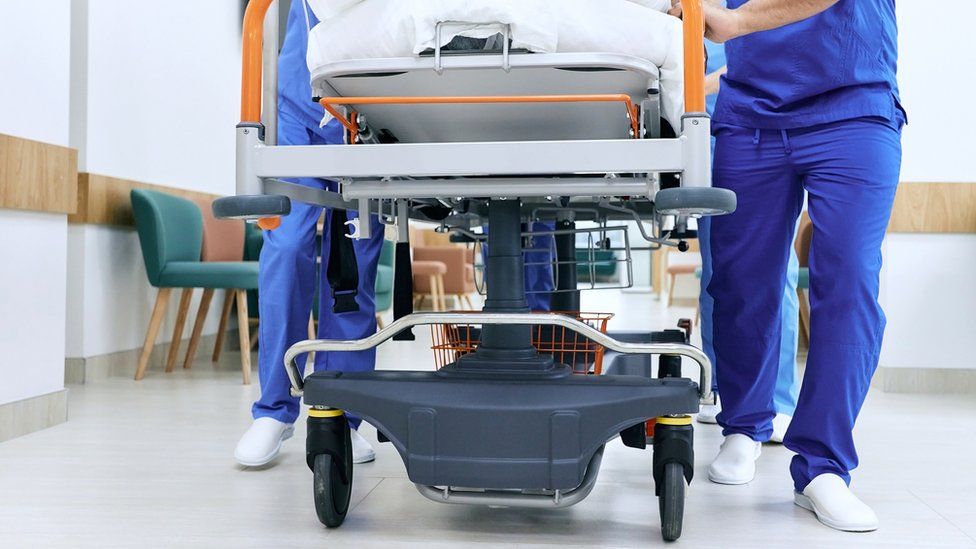ARTICLE AD BOX
 Image source, Getty Images
Image source, Getty Images
NHS leaders and ministers will meet in Downing Street on Wednesday to discuss planning for winter.
The summit will involve the prime minister, health secretary and NHS England boss Amanda Pritchard.
The focus will be on what else the NHS needs to help it through the winter.
With a record number of people on the hospital waiting list, the threat of continued strikes by doctors and long waits for emergency care, concern is growing over how the NHS will cope.
And there will be at least 10,000 "virtual" hospital beds, where doctors provide remote monitoring of patients - who would otherwise have to be admitted to hospital - in their homes.
These have been used in recent years for patients with conditions such as respiratory infections and heart problems.
'The best minds'
Quicker discharge arrangements to get patients out of hospital when they are medically fit to leave are also being promised, through the use of what have been dubbed "care traffic control centres".
These centres bring together the NHS, community, housing and charity teams to help co-ordinate support for those patients who need help once they leave hospital.
Speaking ahead of the meeting - which will include senior doctors - Prime Minister Rishi Sunak said he wanted to bring together "the best minds" to plan for winter.
He said there was one shared aim - protecting patients and making sure they get the care they need this winter.
Sarah-Jane Marsh, NHS England's director of urgent and emergency care, who will be attending, said the winter would be "challenging", but added the NHS had been doing its best to get ready by working on plans since the start of the summer.
Image source, Getty Images
Meanwhile, think tank the Institute for Public Policy Research (IPPR) has called for a fundamental reform of the health and care system, to get it fit for the long term.
The IPPR said the government should fund free personal care for the elderly and frail, as happens in Scotland, to help relieve pressure on the NHS.
It said funding support for daily tasks such as washing, dressing and eating, would be a better option than introducing the £86,000 cap on care costs, which is planned for 2025.
It added the move would keep people living independently and reduce reliance on the NHS, but conceded tax rises may be needed to cover the £5bn-a-year cost.
At the moment personal care is means tested, so only the poorest receive financial support. The IPPR said more money would be needed to be spent on health and care anyway, given the ageing population.
It said funding free personal care would be the "smart investment" that in the long term would help to limit the cost to the NHS.
It estimates the move would lead to another 232,000 people requiring support, on top of the 400,000 already receiving it.
It would also help break down the division between social care, which is run by councils, and the NHS, the think tank said.
To further integrate services, it says a network of neighbourhood health and care hubs should be created to help co-ordinate services such as social care, community NHS support, hospital outpatients service and mental health care.

 1 year ago
22
1 year ago
22








 English (US) ·
English (US) ·